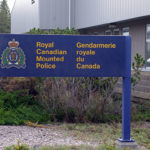Home »

Resorts, hotels to benefit from liquor policy change
B.C. hotels and resorts with a bar, pub or restaurant on site will soon be able to allow their guests to carry unfinished liquor from their licensed establishment directly to their rooms, a move that provides flexibility for businesses and increases convenience for British Columbians and visitors to the province.
Previously, guests were restricted to drinking alcohol in licensed areas and were unable to take their drink back to their room. Hotels and other overnight accommodation spots will have the discretion to allow a guest to finish his or her drink at their own pace and in the comfort of their suite.
Additionally, hotels and resorts that own a bar or pub onsite will soon be able to provide guests with a complimentary standard-sized alcoholic beverage upon check-in.
“These common sense changes respond to feedback received directly from British Columbians during the Liquor Policy Review, and build on previous efforts to cut red tape for the hotel and accommodation industries by allowing hotels with restaurants and bars to offer guests liquor through room service 24 hours a day, provided food is also available. The province has also worked with industry stakeholders including the BC Hotel Association and the Alliance of Beverage Licensees in developing these measures, which will create more opportunities for B.C. businesses to enhance the experience of their guests and customers,” outlined a Ministry of Small Business and Red Tape Reduction and Responsible for the Liquor Distribution Branch press release.
As work continues to modernize B.C.’s liquor laws, ensuring the sale of liquor is regulated in a safe and socially responsible manner remains the top priority, the ministry stated.

This policy will also apply to golf courses throughout B.C., which will have the option to allow guests to carry their drink between licensed areas on the course.
“B.C. has already welcomed over 4.5 million visitors from around the world this year, and these changes will allow our hotels and resorts the flexibility to provide them with best possible experience. By repealing unnecessary liquor restrictions and cutting red tape, we are creating new opportunities for B.C. businesses and increased convenience for British Columbians,” said Coralee Oakes, Minister of Small Business and Red Tape Reduction and Minister Responsible for the Liquor Distribution Branch.
“Throughout the Liquor Policy Review process it was made clear that both British Columbians and industry wanted common sense changes to bring B.C.’s liquor laws into the 21st century. Today’s announcement is a win for the tourism and overnight accommodation industry, and a win for British Columbians and visitors to our province,” added John Yap, Parliamentary Secretary for Liquor Policy Reform.
“Add the luxury of a complimentary cocktail at check-in or the convenience of saying ‘yes’ to a guest who wishes to go back to their room and enjoy the rest of their drink are the details that make our guests feel at home. Removing these small but significant restrictions will help our industry provide the best possible service,” said David MacKenzie, president of the BC Hotel Association.
B.C.’s 2013 Liquor Policy Review made 73 common-sense recommendations to change B.C’s liquor laws to reflect current lifestyles, encourage the growth of small businesses and the province’s economy, address calls for consumer convenience and continue to safeguard health and public safety. This change will implement recommendation No. 64 of the Liquor Policy Review.
To date, 49 of the 73 Liquor Policy Review recommendations have been implemented and work to implement additional recommendations is ongoing.
These changes will come into effect on Jan. 23, 2017.
e-KNOW







